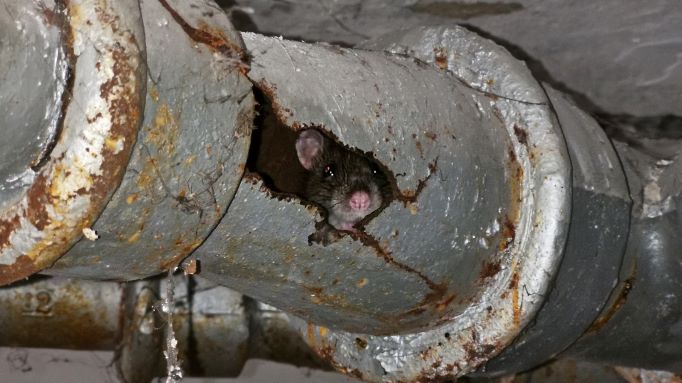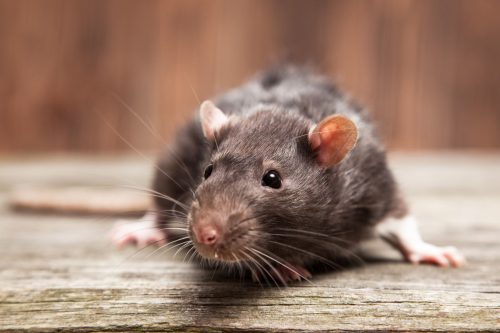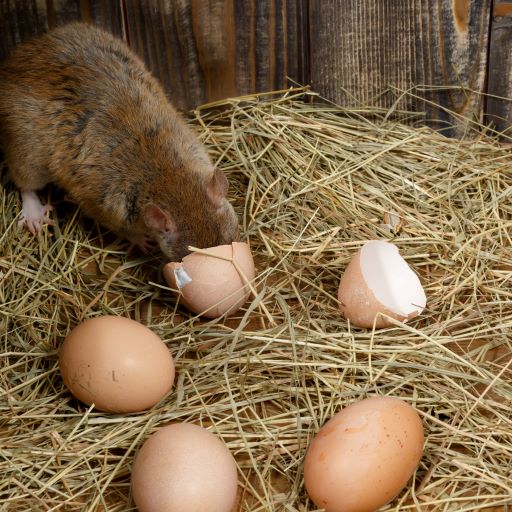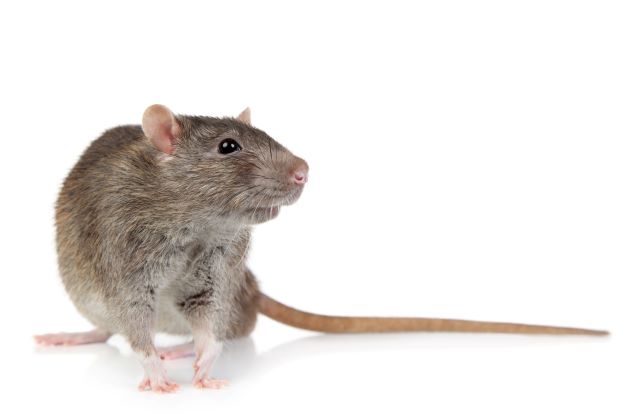Rat Pest Control
Problem with rats in your home or business? call us today

and qualified
Work is backed by The Pest Company Guarantee
Protect your property from rats
If you think you have a rat in your property, it is unlikely to be alone. Rats can spread serious diseases such as leptospirosis and salmonella that can effect people and other animals. They can cause significant damage to property from their constant chewing of wires, plumbing, timbers and other materials. Their droppings and urine can contaminate food items and create a serious health hazard.
Rats reproduce quickly, and so it is important to take action quickly to prevent a minor infestation becoming a more significant problem that is more difficult to eradicate. If you think you have a problem with rats in your property, contact us today.
Speak to The Pest Company on how we can help solve your rat problem.
Call your local professional for a quick response.
Complete our contact form to request a quote.
For North Yorkshire including York and Harrogate, call Jack on 07375 554760
For West Yorkshire including Leeds, Bradford & Huddersfield, call Neil on 0113 318 2143
For Cambridgeshire, call Sean on 01954 581032 including parts of Bedfordshire & Northamptonshire

What Should You Do Next?
For help with rat control call your local professional.
We’ll give you all the expert advice you need to control your rat problem.
Common Rat Species
There are two species of rats found in the UK;
1. Norway Rat (Rattus norvegicus) – also known as the common rat or brown rat, this is the most widespread species in the UK. They are found in rural and urban areas and can adapt to live in a range of different environments.
2. Black Rat (Rattus rattus) – also knows as a ship rat, this is less common and more associated with ports/coastal cities. They are becoming an increasing problem in continental Europe and likely to be a more significant pest species in the UK in the coming decades.
Both species are considered pests, and can both cause damage, spread disease and contaminate food sources. It is important to take measures to control their numbers to prevent more serious infestation.
How do i know if I have rats in my home or business?
There are several signs that you may have a rat problem at your property. Here are some common indicators;
- Droppings – rats can leave droppings in areas they are active. They can be difficult to distinguish between squirrel droppings. The droppings of mice and young rats can also be similar. A professional pest controller should be able to identify which pest species is the likely source.
- Chew marks/damage – like all rodents rats need to continually chew/gnaw to wear down their teeth, which is constantly growing. This could include woodwork, electrical wire, plumbing, personal belongings and even cement.
- Noises – typically at night, but not always. You may hear gnawing and scurrying noises in your walls and roof space. This is a good indicator of rodent activity and needs investigating.
- Nesting materials – rats will build there nest out of any soft material there can find, including paper, cloth and insulation. There are usually in hidden areas such as in walls, and loft spaces.
- Runs and smear marks – rats are creatures of habit. They will often use the same route repeatable as they go about their daily routine. To a trained eye they can leave tell smear marks from their fur grease as they repeatedly pass areas, and wear runs into loft insulation.
Correctly identifying rats at your property can often take experience, considering a combination of evidence mentioned above. Contact a pest professional if you suspect you have rats in your property.
How to get rid of rats
Fully clearing a problem with rats can be challenging. Rats have evolved to be very successful commensal rodent, living beside humans in both urban and rural environments.
Getting rid of rats can require a combined approach of various methods, some only available to professional pest controllers. Methods may include;
- Proofing – prevent rodent access to the property.
- Denial of food and water – Include kitchen scraps, bird feeders, areas of standing water, etc.
- Removal of harbourage – Untidy areas with lots of unnecessary debris can provide cover and security for rats.
- Trapping – including live catch and kill traps, being mindful of both the welfare of the rats, current legislation, and the risk to none target species.
- Chemical control – including the use of anticoagulant rodenticide (rat poison), while following CRRU UK codes of best practice.
Rats are naturally neophobic (fear of new things), and so any methods used have to take this into account in order to maximise success.
Every situation is different, which is where our experienced team can produce a treatment plan that effectively removes any rat problem, and reduces the risk of the problem re-occurring in the future. We will ensure any action taking is, effective, legal, humane and safety to people, pets, and other wildlife.
How to deter rats
Prevention is always better than a cure. Unfortunately there are many products on the market that claim to deter rats, but we have found little evidence that they actually work.
Ultrasonic deterrents claim to deter rats, other mammals, birds and insects. We often find they are not effective and at best provide only a temporary disturbance to the pest activity. Home remedies also, such as peppermint, citrus oil, hot pepper (the list is endless), we see used frequently with little effect.
There are a few practical steps you can take however to help reduce the attractiveness of your property to rats;
- Remove food sources – This can be anything from bird feeders in the garden, kitchen scraps in compost piles, or left out pet food. Keeping all food away from rodents will greatly reduce attractiveness to rats.
- Removal water sources – leaking plumbing, broken drain covers, bird baths are just a few examples. Rats need an external water source, and cannot gain all their moisture from their food like mice can. If rats don’t have a source of water, this greatly reduces their chances of sticking around.
- Removal shelter – keeping an area clean and tidy without any unnecessary debris can make an area less attractive to rats. Cover helps rats create secure nesting areas, and move around protected from predators.
- Keep your property in a good state of repair – pests can often gain access when buildings fall into disrepair. A broken roof tile, hole in brickwork, a poorly fitted door, all are potential entry points that may one day be exploited by a pest.
Rats in the garden?
Rats can be an unwelcome visitor to your garden, and will often make their home beneath decking, garden sheds, compost heaps and green houses. These locations can be dry, warm and protect the rats from predators.
Birds feeders are a common cause of attraction. Seeds that falls to the ground are an easy meal. Taking feeders in on a night can help since rats are generally nocturnal. However we have known rats learning to venture our on a morning when they know the bird feeders will appear.
Rats need a water source to survive. In the garden this might be a pond, a bird bath, or simply empty plant pots that are collecting water. Any standing water that you can remove will help deter rats.
Try and keep your garden tidy. Overgrown vegetation or other debris can provide good cover for rats to move around, or dig their burrows.

Rats in the loft?
Hearing sounds in your loft? This is either rats, mice, squirrels or sometimes birds. From a site survey we would be able to identify the source of the noise, and implement an effective treatment plan to remove the problem pest.
Lofts provide a safe, warm and dry area for rats to nest and sleep. They may be accessing the loft from the outside of the roof directly, or climbing up wall cavities from a lower entry point. Wall cavities also allow the rats access into other areas of the property, including the kitchen and bathroom spaces following the properties plumbing.
If left, rat urine and droppings can collect on loft insulation reducing its effectiveness and requiring replacement. Damage can occur to personal belongings, wiring and plumbing.
Rats in the drains?
One of the most common entry points into a property, rats living in our sewer systems can gain access into our homes and businesses. Faults in the drain lines can allow access out of the drainage system into the surrounding ground and under/into the wall and flooring of buildings.
Rats can then enjoy the shelter of our properties, popping back into the drain for their food and water.
This is why we would often recommend a CCTV drain survey as part of a rat treatments, to identify any possible entry points.
Long standing rat problems which have plagued a property for many years can often be attributed to a fault in the drainage system.

Is rodenticide (poison) safe to use around dogs and cats?
A professional and competent pest controller would always take into account the risk to none target pets and wildlife when designing a treatment plan for rats.
In some cases the use of rodenticide may not be appropriate. However we can often use our experience to present bait in a way that is protected by children, pets and other animals. This might be through the use of secure bait boxes, or positioning the bait in a way that only the rats can access. It may also involve using different products where the concentration, active ingredient and formulation poses a lower risk.
As registered supports for the Campaign for Responsible Rodenticide Use, we adhere to all codes of best practice of the UK Rodenticide Stewardship Scheme.
Fully Qualified and Insured
Our experienced team have the knowledge and skill to work both effectively and safely.
Safe – Humane – Effective
100% Effective Treatments
Why chose The Pest Company? We have many years of experience in the pest control industry, with all our worked back by The Pest Company Guarantee.
BPCA Members
As members of The British Pest Control Association we strive to deliver the highest standards of service, and comply with all industry codes of best practice.

